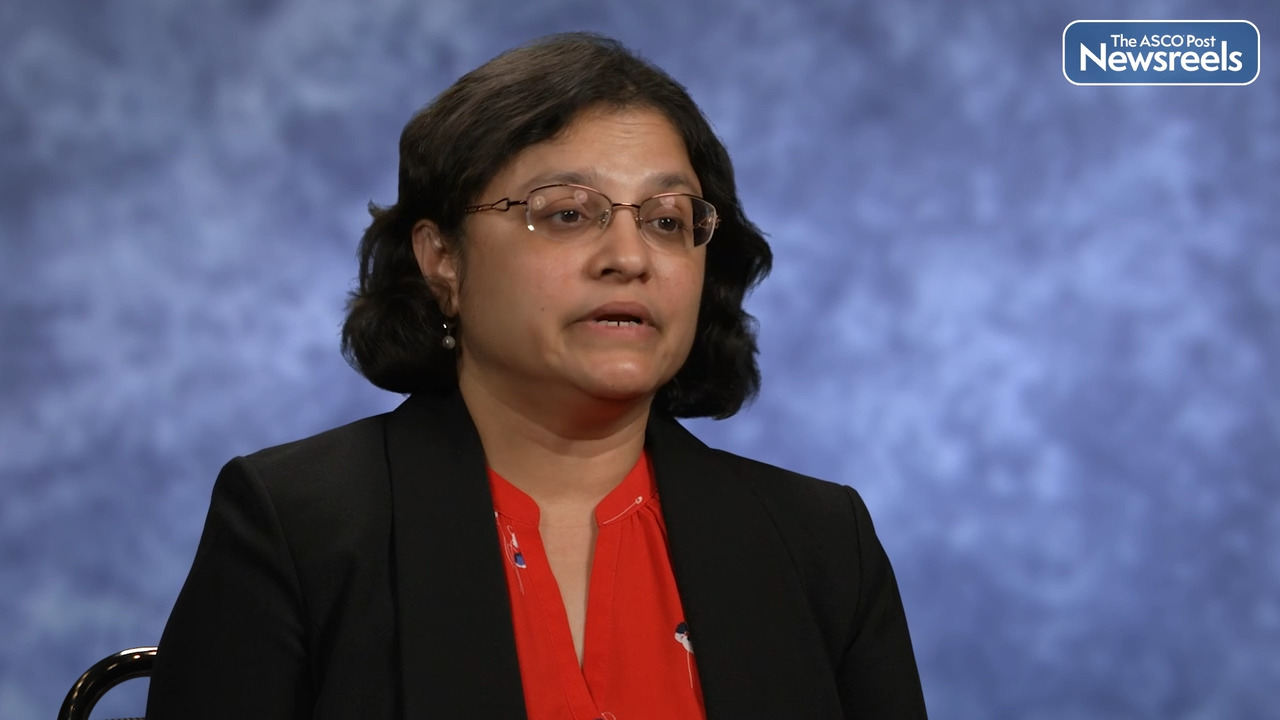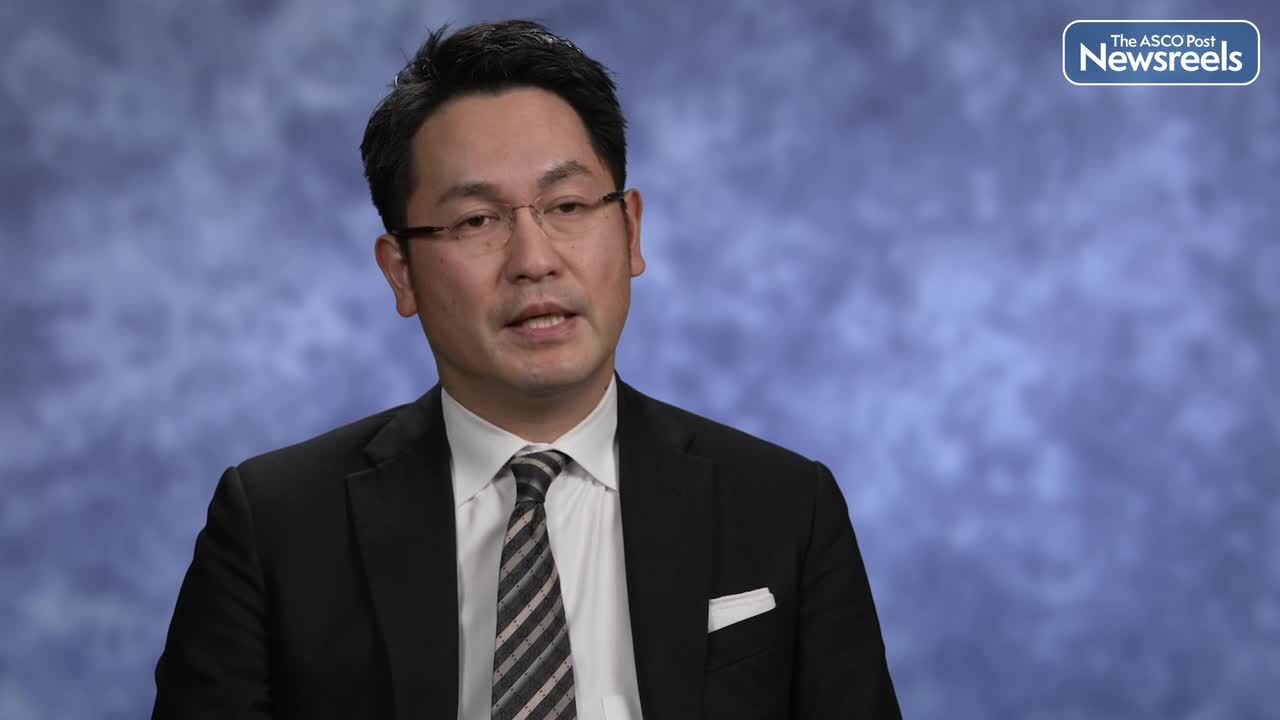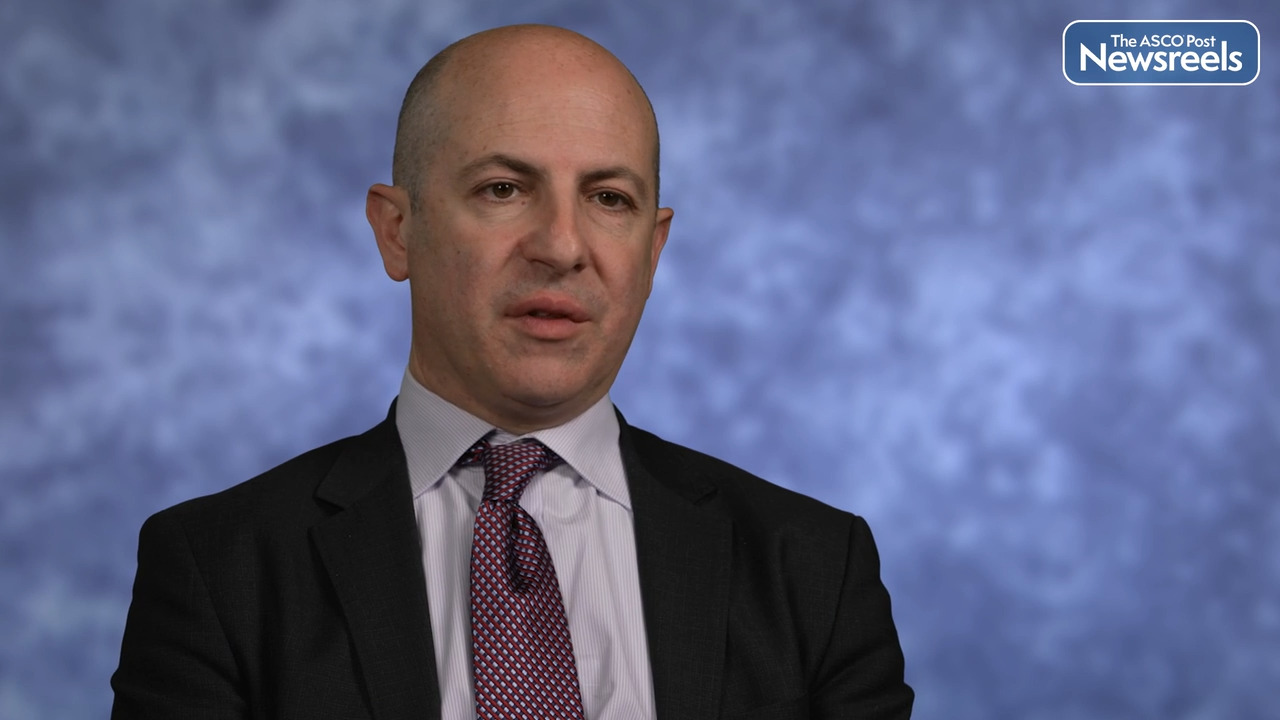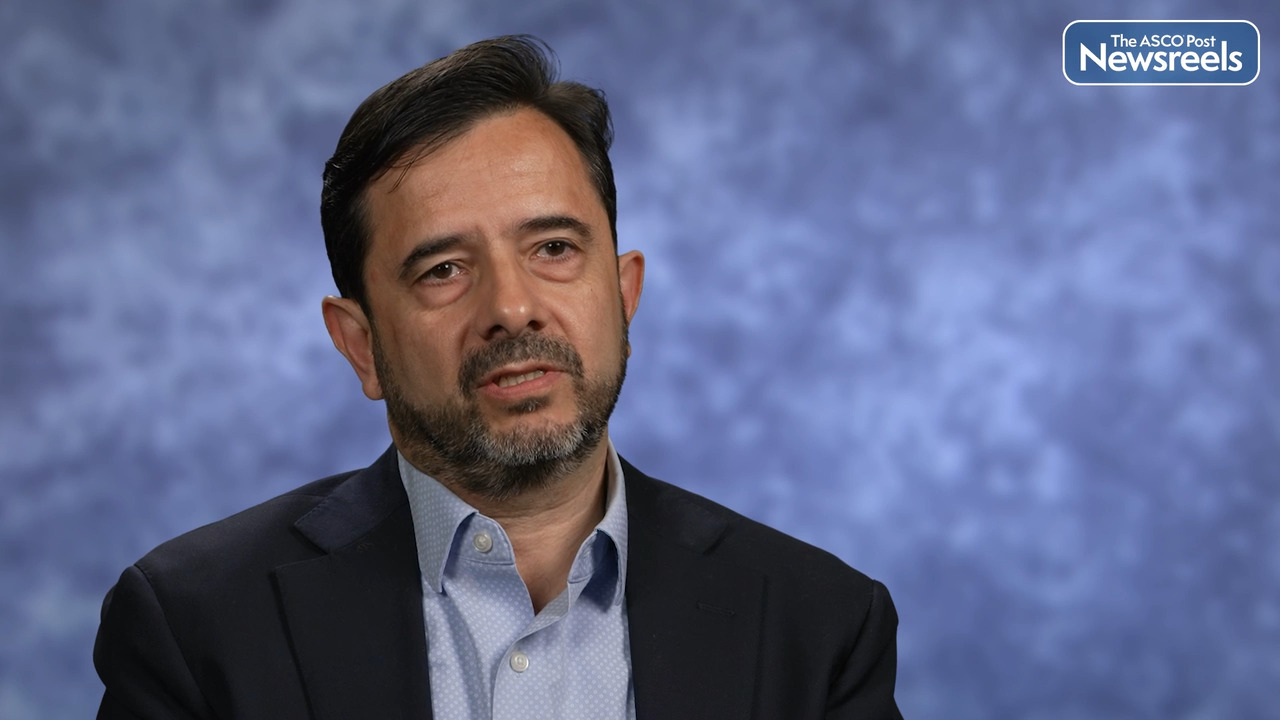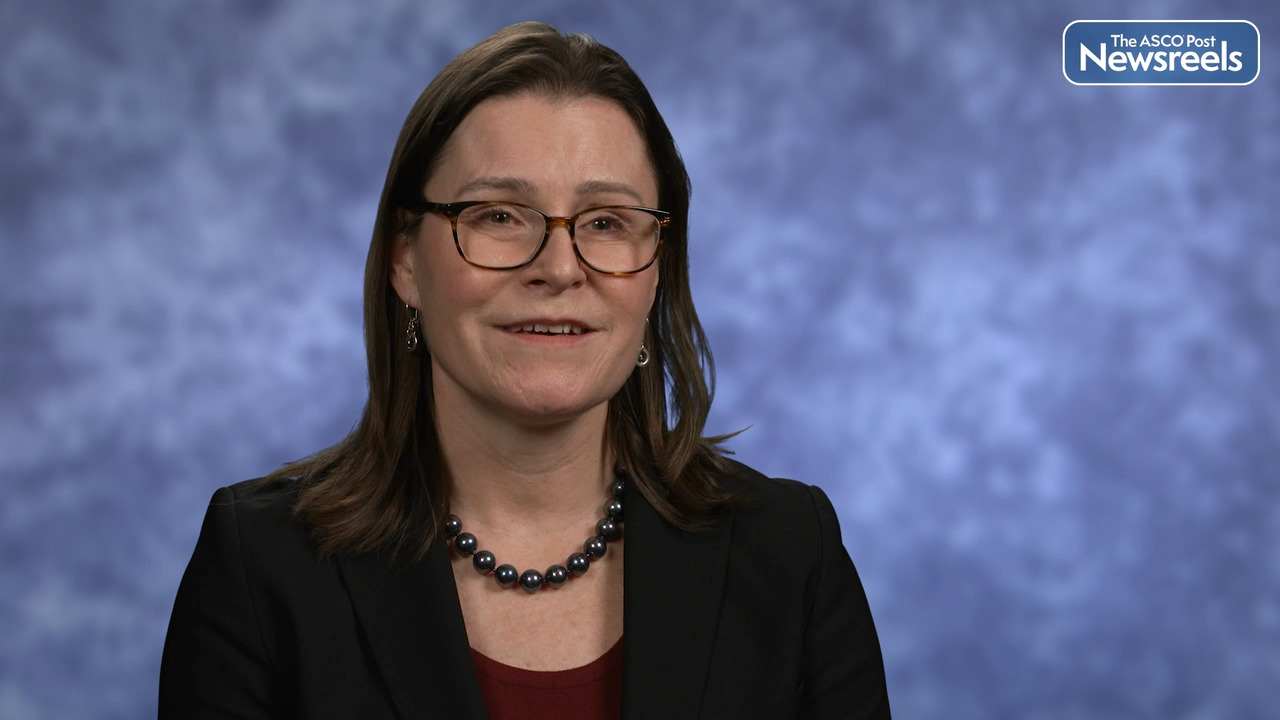Transcript
Disclaimer: This video transcript has not been proofread or edited and may contain errors.
SUNLIGHT is a large phase III randomized trial conducted in patients pre-treated with two lines of therapy and all having metastatic colorectal cancer with all molecular subtypes. The study is very interesting because it's positive. It has reached its primary endpoint with an improvement in overall survival of 3.3 months as compared to the trifluridine and tipiracil alone when you are using trifluridine and tipiracil with bevacizumab. So the addition of the antiangiogenic drug that is already used in first and second line in patient with RAS mutant colorectal cancer, for example, is adding something new in the third-line setting.
This study is quite important because it succeeded in improving OS, but also in improving progression-free survival, with here, again, something like 3.2 months improvement, and also improving the time to degradation of the performance status of the patient, again, of 3 months. So, all the results are very consistent. It's a major, I would say, step forward in this disease in the third line setting. Of course, 3 months can seem a bit low, but in this setting it's just incredible. No studies to date have ever succeeded to show such an improvement and it will probably dramatically change the sequence of treatment options that we have in this patient.
So, generally, we know what to do in first and second line depending on the molecular status of the disease with many possibilities for first and second line. But in third line, we were, generally, balancing oral drug like trifluridine and tipiracil or regorafenib, or more recently, we have had a positive trial with fruquintinib.
I would say that the SUNLIGHT trial, we changed things because, clearly, the improvement we have here has never been seen before, and I would say that trifluridine and tipiracil plus bevacizumab is going to be the new standard third line, and all other drugs, oral, are going to be moved after this line of treatment to fourth or fifth line of therapy. So it's a practice changing trial. It's very important for our daily practice. In terms of tolerability, it's very good for the patient, because we are seeing the tolerability issues that we are facing with trifluridine and tipiracil with bone marrow, I would say, toxicities and low blood cell counts, et cetera. But globally, there is not an added toxicity with the use of bevacizumab except the classical toxicity of this very well tolerated drug.
